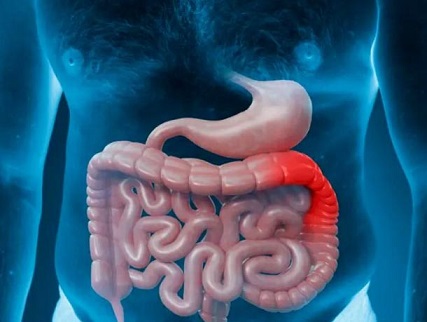Nikhil Prasad Fact checked by:Thailand Medical News Team Aug 24, 2024 1 year, 4 months, 3 weeks, 2 days, 16 hours, 47 minutes ago
Medical News: Ulcerative colitis (UC) is a chronic inflammatory bowel disease that significantly impacts the lives of millions of people worldwide. Traditional treatments have focused on drugs that suppress the immune system or reduce inflammation, but these often come with severe side effects and limited long-term effectiveness. However, a new wave of research suggests that plant-derived polysaccharides might offer a promising alternative, providing effective treatment with fewer side effects. This
Medical News report delves into the potential of plant polysaccharides in treating UC, highlighting key study findings and offering a comprehensive overview of how these natural compounds work.
 The potential of plant polysaccharides for Ulcerative Colitis
The Role of Polysaccharides in Treating UC
The potential of plant polysaccharides for Ulcerative Colitis
The Role of Polysaccharides in Treating UC
Researchers from Xinjiang University, including Yilizilan Dilixiati, Adila Aipire, Ming Song, and others, have been exploring the therapeutic potential of plant polysaccharides for UC. Polysaccharides are large, complex molecules found in many plants. They are increasingly recognized for their ability to modulate the immune system, reduce inflammation, and even protect the gut lining - key factors in managing UC. This article provides an in-depth look at how these natural compounds could revolutionize UC treatment.
Plant polysaccharides have unique properties that make them particularly effective in treating UC. Unlike synthetic drugs, which often target a single aspect of the disease, polysaccharides can simultaneously address multiple factors that contribute to UC. They can regulate immune responses, protect and repair the intestinal lining, and even influence the gut microbiota, the community of microorganisms that live in our digestive tract.
Key Findings on Polysaccharide Mechanisms
One of the most significant findings in this field is that polysaccharides can modulate cytokine production. Cytokines are proteins that play a crucial role in the immune system, and their dysregulation is a hallmark of UC. Studies have shown that certain plant polysaccharides can reduce the production of pro-inflammatory cytokines like TNF-α and IL-6 while increasing anti-inflammatory cytokines such as IL-10. This dual action helps to dampen the chronic inflammation that characterizes UC.
Another crucial mechanism is the ability of polysaccharides to enhance the integrity of the intestinal mucosal barrier. In UC, this barrier is often compromised, allowing harmful substances to pass into the bloodstream and trigger inflammation. Polysaccharides from plants like Scutellaria baicalensis and Tremella fuciformis have been shown to increase the production of tight junction proteins, which are essential for maintaining the barrier's integrity. This not only helps to prevent further damage but also allows the gut to heal.
Furthermore, polysaccharides can positively influence the gut microbiota, promoting the growth of beneficial bacteria while inhibiting harmful ones. For example, research has shown that polysaccharides from Atractylodes macrocephala can increase the abundance o
f bacteria that produce short-chain fatty acids (SCFAs), which are known to support gut health. These SCFAs play a vital role in maintaining the health of the colon lining and preventing inflammation.
Polysaccharides as Drug Carriers
In addition to their direct therapeutic effects, plant polysaccharides are also being investigated as carriers for delivering other drugs to the colon. The current UC treatments often struggle with targeting the diseased area effectively, leading to widespread side effects. However, when combined with polysaccharides, these drugs can be more efficiently delivered to the inflamed regions of the colon, reducing systemic exposure and enhancing the therapeutic effect. This innovative approach is particularly promising in reducing the side effects associated with UC drugs.
For instance, researchers have developed nanoparticles coated with polysaccharides that can carry drugs directly to the site of inflammation. These nanoparticles protect the drug from being broken down in the stomach and small intestine, ensuring that it reaches the colon intact. Studies have shown that this method can significantly improve the drug's effectiveness while minimizing side effects.
The Future of UC Treatment: Combining Traditional and Modern Approaches
The integration of plant polysaccharides into UC treatment represents a potential paradigm shift. These natural compounds not only offer a new approach to managing the disease but also align with the growing interest in holistic and less invasive treatments. The combination of polysaccharides with existing drugs could enhance their efficacy and reduce the risk of adverse effects, making treatment more tolerable for patients.
However, while the initial findings are promising, more research is needed to fully understand the potential of plant polysaccharides in treating UC. Most studies have been conducted in animal models, and clinical trials in humans are necessary to confirm these benefits. Researchers are also working to better understand the relationship between the structure of polysaccharides and their therapeutic effects, which could lead to the development of more targeted and effective treatments.
Conclusion
The potential of plant polysaccharides in treating ulcerative colitis is a promising area of research that could lead to safer and more effective treatments for this chronic condition. By modulating the immune system, protecting the gut barrier, and influencing the gut microbiota, these natural compounds offer a multifaceted approach to managing UC. As research progresses, we may see these plant-derived treatments become a mainstay in UC therapy, offering hope to millions of patients worldwide.
The study findings were published in the peer-reviewed journal: Pharmaceutics.
https://www.mdpi.com/1999-4923/16/8/1073
For the latest on Ulcerative Colitis, keep on logging to Thailand
Medical News.
Read Also:
https://www.thailandmedical.news/news/traditional-chinese-medicine-offers-hope-for-ulcerative-colitis-sufferers-by-targeting-micrornas
https://www.thailandmedical.news/news/herbs-and-phytochemicals-oxymatrine-from-sophora-flavescens-provides-relief-for-ulcerative-colitis
